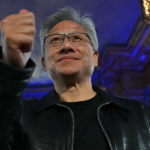Good morning. As someone who recently interviewed her own digital avatar on stage at a Fortune event, I know how fast the technology to mimic humans is evolving. But even I was stunned by some of the tales from the frontlines of workplace fraud, per my recent conversation with Pindrop CEO Vijay Balasubramaniyan.
Election interference and money scams, we get. Why create a deepfake job candidate? Corporate espionage may be one factor: “We’re finding one in 343 applicants is from North Korea.” The biggest motivation is money. Balasubramaniyan points to candidate farms in places like Pakistan, India, and other spots where professional interviewers act on behalf of people who are just trying to get a job.
Balasubramaniyan estimates that in-person roles get about 100 applicants, hybrid roles attract 200 and fully remote jobs attract more than 800 applicants. Once those remote workers are on board, the challenge doesn’t stop. Deepfake coworkers—especially IT staff calling for a password reset—are becoming more common.









